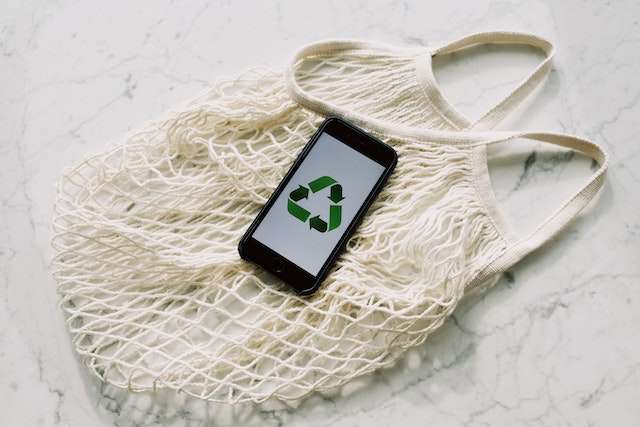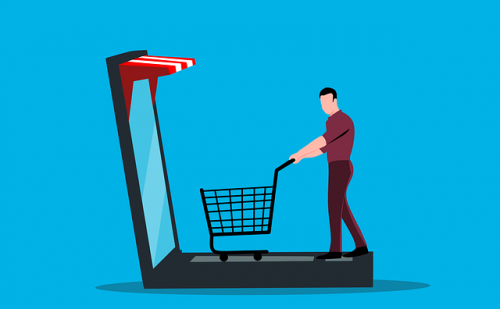With global temperatures on the rise, the need for restraint and compassion towards the planet becomes more dire. People are also looking to retailers and corporations to set an example, using their power as consumers to uplift brands that hold earnest convictions (as well as enticing products), while ignoring brands that remain apathetic to the injustices of the world.
People want brands that are holistically eco-conscious. They will look for inconsistencies and inauthenticity, as they’re no longer naive to the common performance of “greenwashing.” Greenwashing is the act of fake sustainability in order to impress the public. These days, the practice is widespread.
Brands should consider their carbon footprint at every stage from a genuine place of selflessness. That being said, no one expects perfection. Sustainability doesn’t mean complete abstinence but instead means the moderate and efficient use of resources.
No one strategy is perfectly green. Digital marketing produces gas emissions as routers send information signals to data centres to process. Paper printing encourages deforestation and releases contaminants while being processed. The trick is to strategize with the least harm possible.
The Strategies
Here we’ll focus on green strategies for retailers that have a minimal impact on the environment, specifically in the advertising stage.
Repurposed Materials
It’s hard to give up paper distribution entirely; flyers, business cards, stickers, and merch are so useful for brand awareness. That being said, there’s no reason to be using newly sourced paper when there are so many great recycled materials (including paper) to use. They often bring a nice texture and colouring to them as well. You can even get creative and print things on specialty paper containing regenerative items like seeds within the pulp, so that when the paper is no longer needed, it can be planted. Now that’s eco from start to finish!
People are also more likely to hold on to things that look nice and have some extra functional value.
Company Merch
Promotional merch can be layered with levels of green decision-making. While there’s some negative impact in the production of the items, many items can be solutions to environmental problems.
You can sell/give away branded items (ordered from production companies that ethically source materials, practice zero waste, and give back to the planet) such as reusable metal straws, recycled tote bags, pens, reusable water bottles, and pins to your customers. So many successful promotional items are small and reusable, reducing production emissions and plastic waste!
As an added green layer, this strategy includes the distribution of your messaging, which your customers will pull for free with no extra emissions on your end. Since they’ll be walking around, wearing and carrying your merch, they display your brand to thousands of people “on foot” (so no extra footprint—pun intended—is created to distribute it). It’s incredibly effective. Think of how much things like company pens get passed from hand to hand constantly. Short of people tattooing your logo on their foreheads, this is as good as it gets for green marketing. Free and mobile brand ambassadors for the win.

Referrals
On that same note, encouraging word-of-mouth advertising is a great strategy. Word-of-mouth is an incredibly effective marketing strategy, and apart from a little carbon dioxide expelled while breathing, it’s completely eco-friendly. To encourage this, provide referral incentives (promotions, gifts, etc.) when customers send new customers your way!
Green Light
Solar power is all the rage right now and for a good reason; it harnesses a renewable resource for us without much drawback. The sun is gonna shine anyway, we might as well use it instead of expensive and unsustainable electric energy to power our lights. This means we can charge up panels during the day for free (after the upfront installation costs) and use them to power a large logo sign at night on rooftops, billboards, and storefronts.
Super-efficient LED lights are also a great alternative to standard neon lighting systems.
Eco-Website
Traditional web hosts and websites create large energy emissions while information is sent and sorted in power/data centres, cooling control devices, server connections, security services, etc. These departments often use non-renewable energy to power them. They account for 2% of greenhouse gas emissions (the same amount as all the planes out there flying around the world)!
Green web hosts run on renewable energy, such as hydroelectricity and wind power. We suggest using one partnered with the Google Cloud Platform, since they match 100% of their consumed energy with renewable energy and aim to be carbon neutral.
You can reduce energy use by making your website as efficient as possible. Tapering photos/videos to proper compaction to reduce file sizes and loading time can help while delivering all necessary information on the landing page (switching pages and clicks syphon energy). Use awesome tools like lazy load and web caching to use only what you need to. Logical navigation, moderation, and editing out unnecessary features are key to having a green website. At Linkeo, we recently redid all of our websites to reduce our global emissions and improve our carbon footprint. We’re also in the process of greening all of our client sites, lightening their load on the planet, while also optimizing their findability and customer experience.

Green Through and Through
The best is to be green from start to finish. Companies can make sustainability efforts in packaging and design choices, messaging and education efforts, the creation of environmental solutions as products themselves, making donations, partnering with other responsible brands, and providing resources like refill stations, disposal services, returns for donation, and more.
For great advice on green marketing and other eco-strategies, check out retailers-online.com, the Linkeo blog designed just for retailers.
PS, Thank you to ready made at Pexels for the sleek and soothing thumbnail. Thank you for inspiring a more eco-friendly world.




